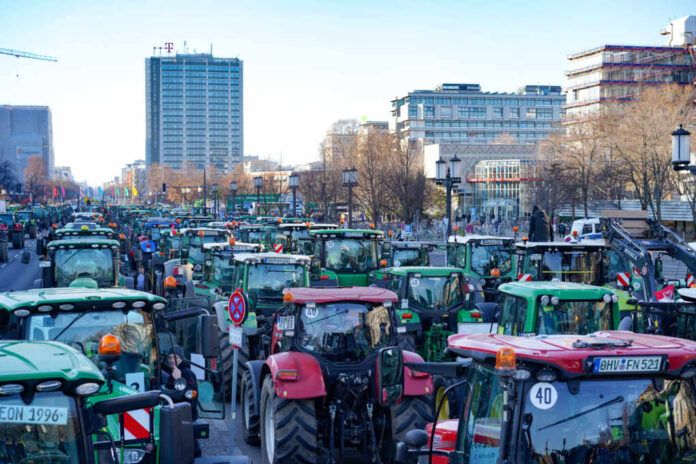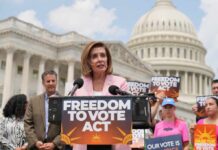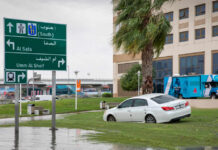
Over 10,000 protesters, including farmers and truckers, have converged on Berlin in a remarkable demonstration of unity and discontent. Their collective grievance is against the German government’s controversial agricultural and environmental policies, which they argue are set to destroy their livelihoods and directly harm the country’s consumers.
The heart of Berlin witnessed an extraordinary scene as tractors and trucks, symbols of the agricultural and transportation sectors’ distress, lined the streets. The demonstration, peaking on Monday, is a significant statement against the coalition government’s approach toward agriculture and environmental issues.
10,000 Expected at Tractor Protest Against German Government as Truckers Join Rebels https://t.co/uIiYT1oKE5
— Wendy Kortepeter (@WKortepeter) January 15, 2024
At the forefront of this contention is the government’s decision to phase out tax breaks on agricultural diesel, a move seen as a financial blow to the farming community. The government, attempting to balance its budget after a constitutional court ruling, underestimated the farmers’ resolve.
Finance Minister Christian Lindner, addressing the protesters, underscored the budgetary constraints, stating, “I can’t promise you more state aid from the federal budget.” Though aiming to strike a conciliatory tone, his words were met with jeers. Lindner’s assertion that the scarce funds are earmarked for other critical sectors like schools and roads did little to quell the discontent.
The farmers’ protest is more than a reaction to a single policy change. It is an outcry against what they perceive as a series of measures hostile to their profession. The removal of a diesel subsidy and the end of tax exemptions for agricultural vehicles are seen as the latest in a series of ‘thousand cuts’ to the agriculture sector.
This demonstration, significant in scale and sentiment, has garnered diverse support. The German Farmers Association President and Federal Finance Minister were among the speakers, highlighting the protest’s political gravitas. However, the event wasn’t without its challenges. As Lindner attempted to speak, he was drowned out by shouts, reflecting the palpable frustration among the attendees.
The truckers’ participation adds another layer to the protest. They share similar grievances, particularly about rising operational costs due to ‘CO2 pricing’ and increased toll road prices. This solidarity between farmers and truckers underscores a unified stance against policies perceived as unfairly burdensome.
The protest’s size and impact are noteworthy. Police set a limit of 5,000 vehicles, yet over 3,200 tractors were already in Berlin, with thousands more en route. This overwhelming response forced the authorities to manage the influx with designated parking areas and road closures. Such logistical challenges reflect the protest’s scale and the government’s underestimation of the agricultural community’s determination.
The protesters’ cause has found resonance beyond their ranks. A report by B.Z. indicated that 70% of Germans support the farmer’s protests. The government’s labeling of the protesters as “extremists” has sparked further controversy, with critical voices in the German media denouncing such accusations as an attempt to stifle legitimate dissent.

































